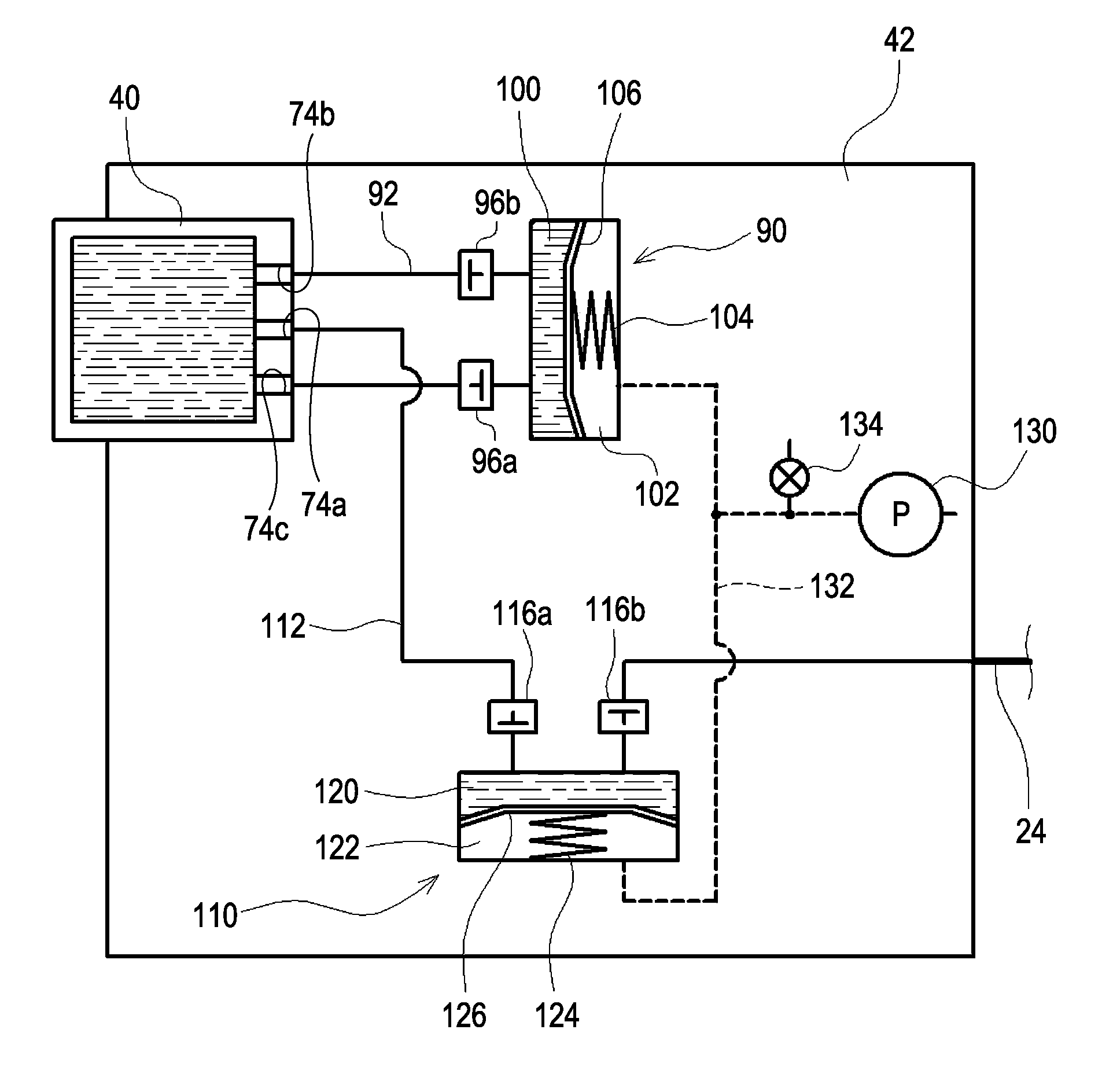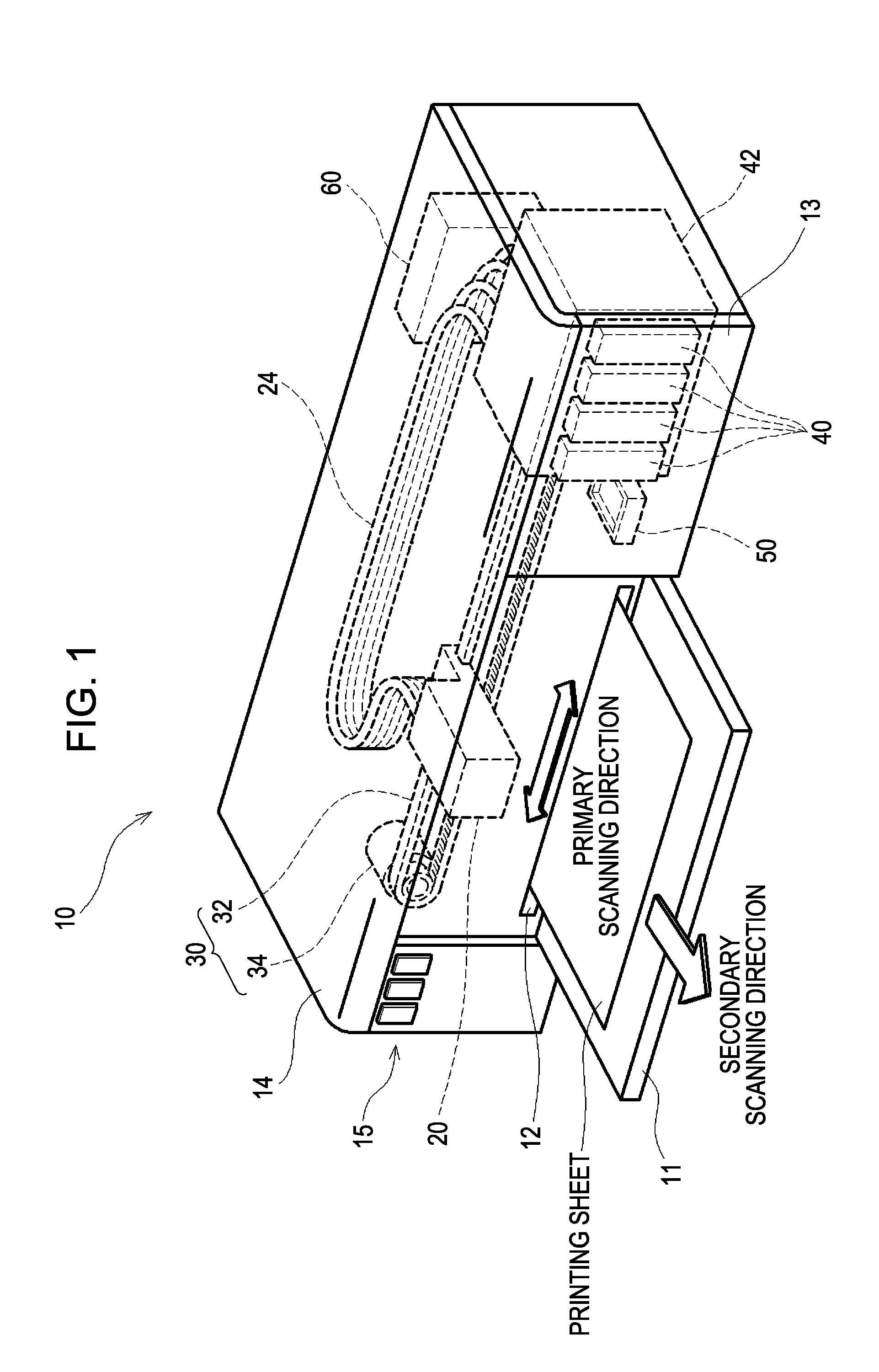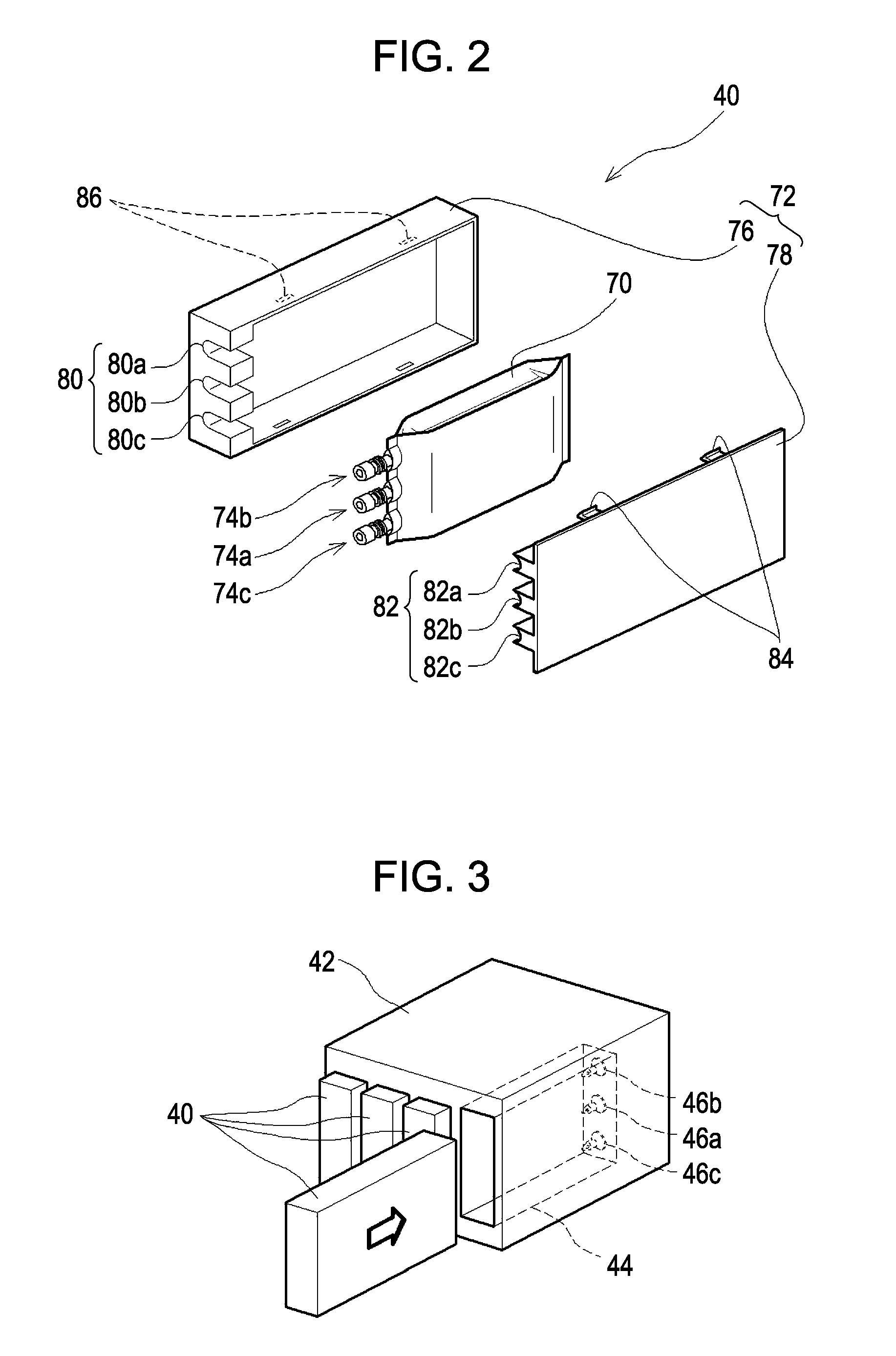Liquid ejecting apparatus
a liquid ejecting apparatus and liquid technology, applied in printing and other directions, can solve the problems of increased concentration of liquid, uneven liquid ejecting, adverse effects, etc., and achieve the effect of miniaturizing the liquid ejecting apparatus, reducing the volume of the decompression pump, and increasing the amount of air which the decompression pump discharges
- Summary
- Abstract
- Description
- Claims
- Application Information
AI Technical Summary
Benefits of technology
Problems solved by technology
Method used
Image
Examples
first modification
C-1. First Modification
[0058]In the above-described embodiment, the agitation operation of the ink in the ink cartridge 40 is performed when the ink of any color is ejected from the ejection head 20. However, before the ink is ejected, in the state where the ink is not ejected, at the short interval, the circulation pump 90 may be driven by using the decompression pump 130.
[0059]As described above, in the ink jet printer 10 of the embodiment, in the state where the ink is not ejected, the unneeded ink is not supplied to the ejection nozzle by the liquid-feeding pump 110 even though the decompression pump 130 is driven (refer to FIG. 5). Thereby, in the state where the ink is not ejected, at the short interval, through driving the circulation pump 90 by using the decompression pump 130, it is possible to start the printing while previously agitating the ink in the ink cartridge 40 before ejecting the ink. Therefore, for example, the printing is not performed for an extremely long tim...
second modification
C-2. Second Modification
[0060]In the above-described embodiment and the first modification, the liquid-feeding pump 110 and the circulation pump 90 are driven by depressurizing the air chambers (the air chambers 122 and 102) of the inner portions of the pumps through the use of the decompression pump 130. However, the liquid-feeding pump 110 and the circulation pump 90 may be driven as follows.
[0061]FIG. 8 is an explanatory view showing a driving mechanism of the liquid-feeding pump 110 and the circulation pump 90 of the second modification. The driving mechanism of the liquid-feeding pump 110 and the circulation pump 90 of the second modification is different to the above-described driving mechanism of FIG. 5 as follows. That is, the decompression pathway 132, which introduces the negative pressure generated in the decompression pump 130, is connected to the air chamber 122 of the liquid-feeding pump 110. However, the decompression pathway 132 is not connected to the air chamber 10...
PUM
 Login to View More
Login to View More Abstract
Description
Claims
Application Information
 Login to View More
Login to View More - R&D
- Intellectual Property
- Life Sciences
- Materials
- Tech Scout
- Unparalleled Data Quality
- Higher Quality Content
- 60% Fewer Hallucinations
Browse by: Latest US Patents, China's latest patents, Technical Efficacy Thesaurus, Application Domain, Technology Topic, Popular Technical Reports.
© 2025 PatSnap. All rights reserved.Legal|Privacy policy|Modern Slavery Act Transparency Statement|Sitemap|About US| Contact US: help@patsnap.com



